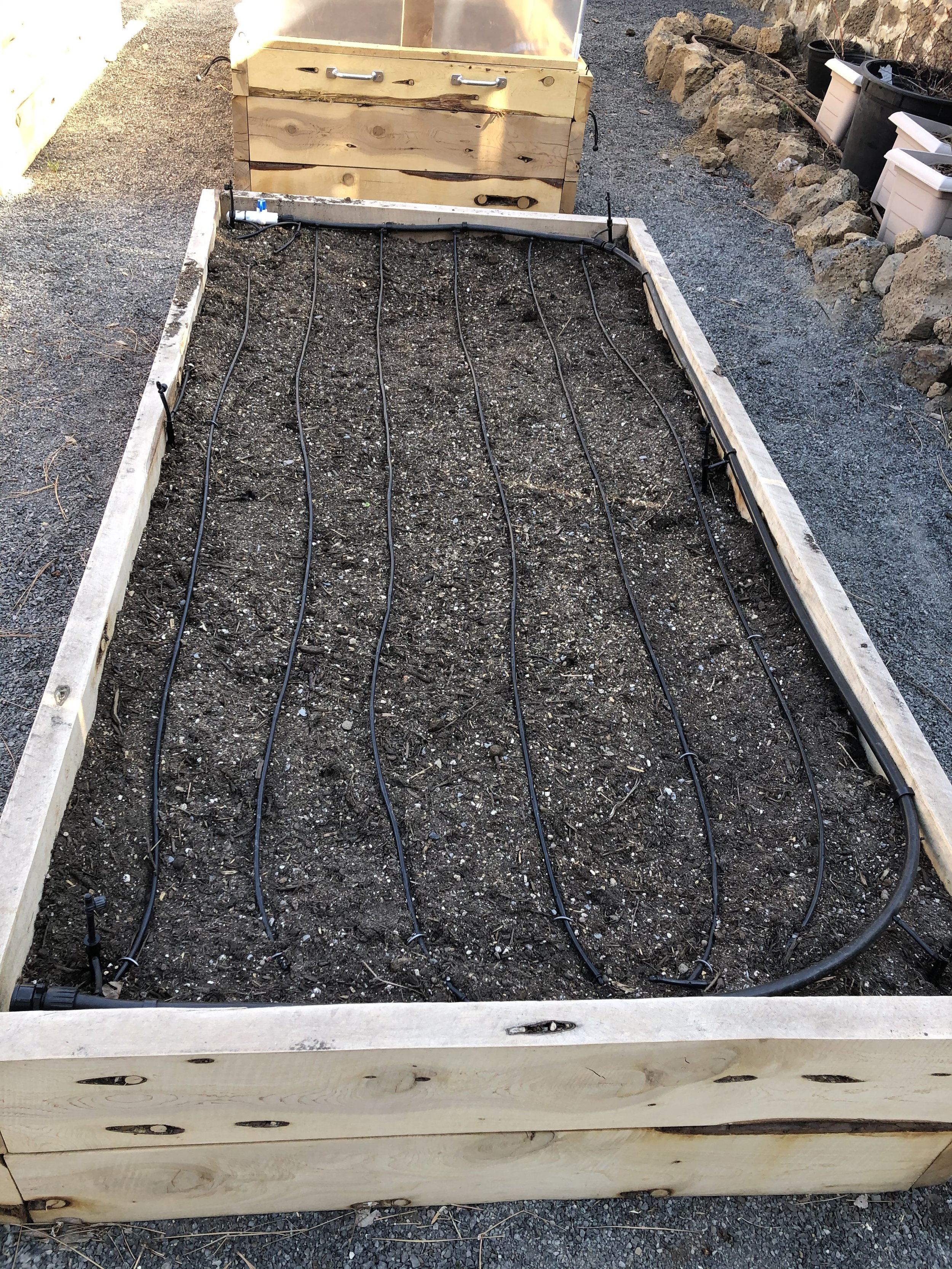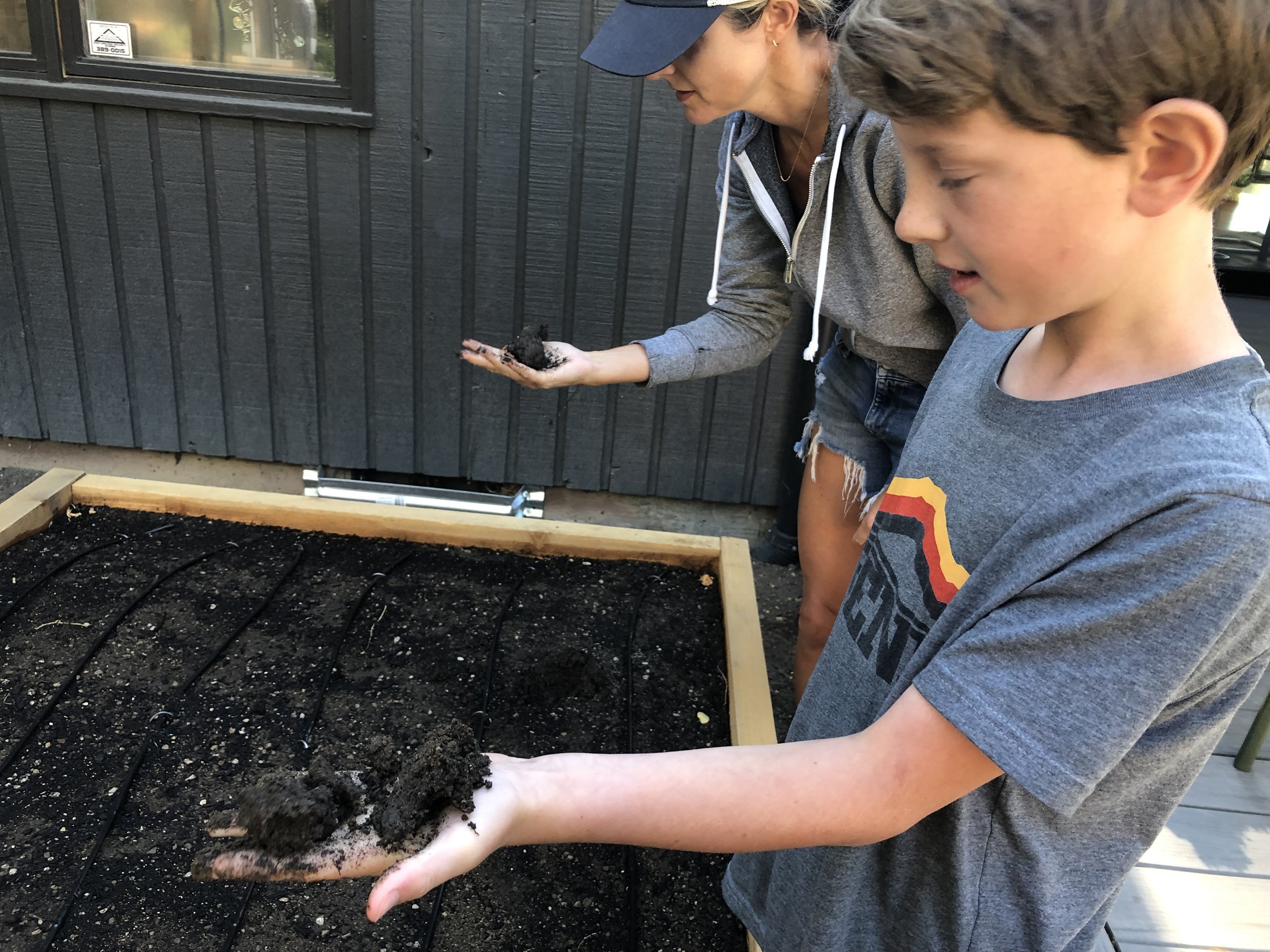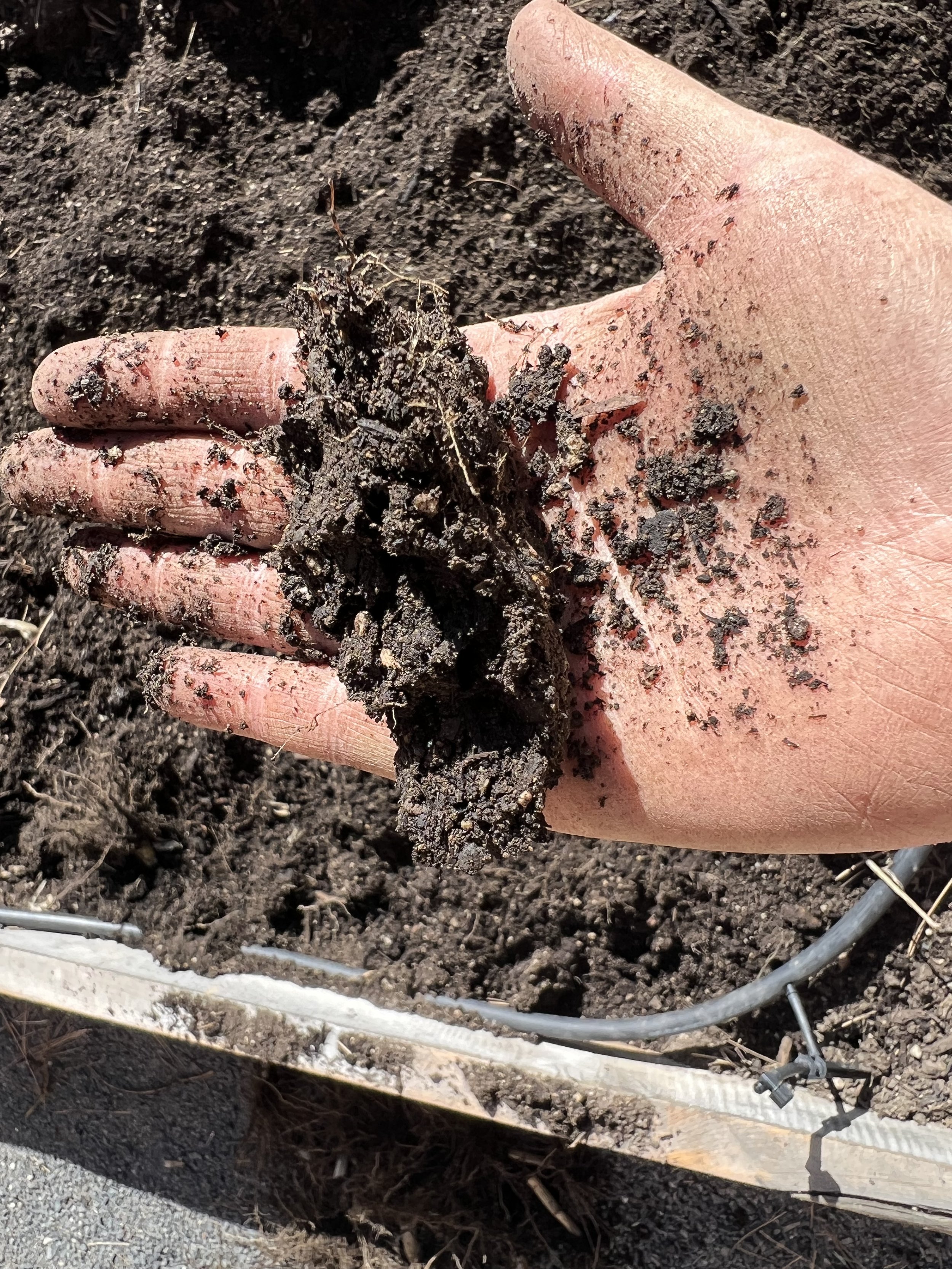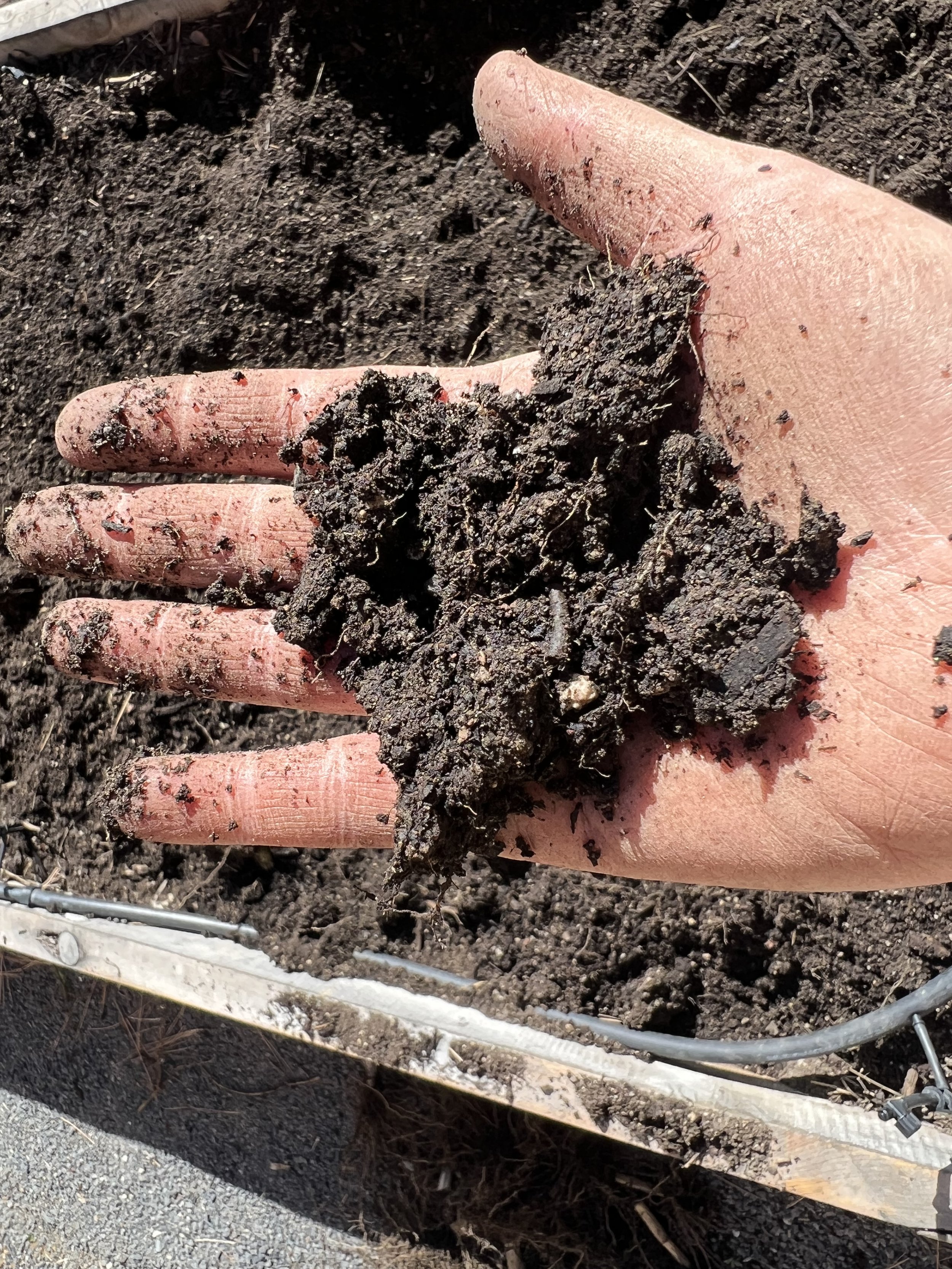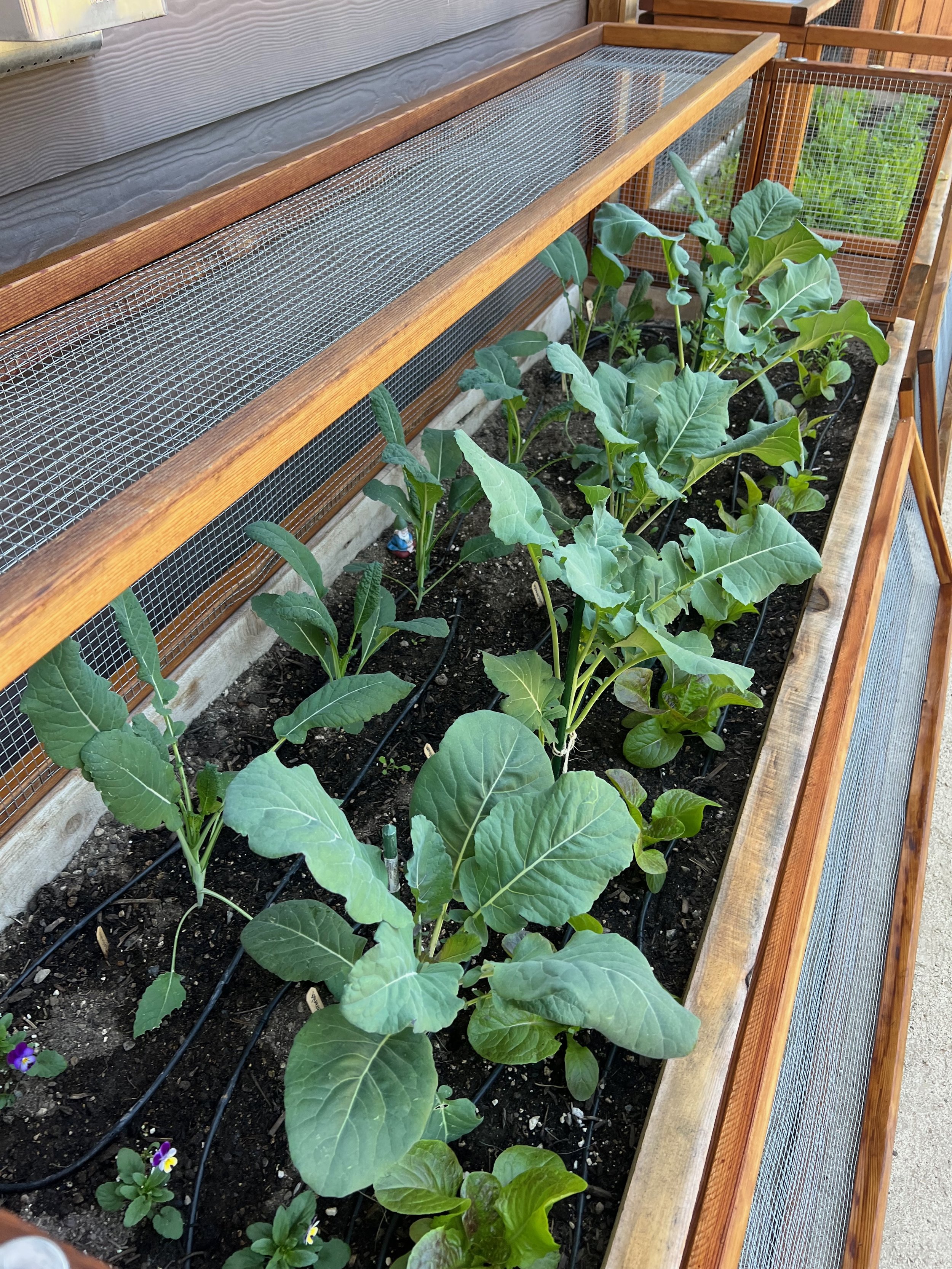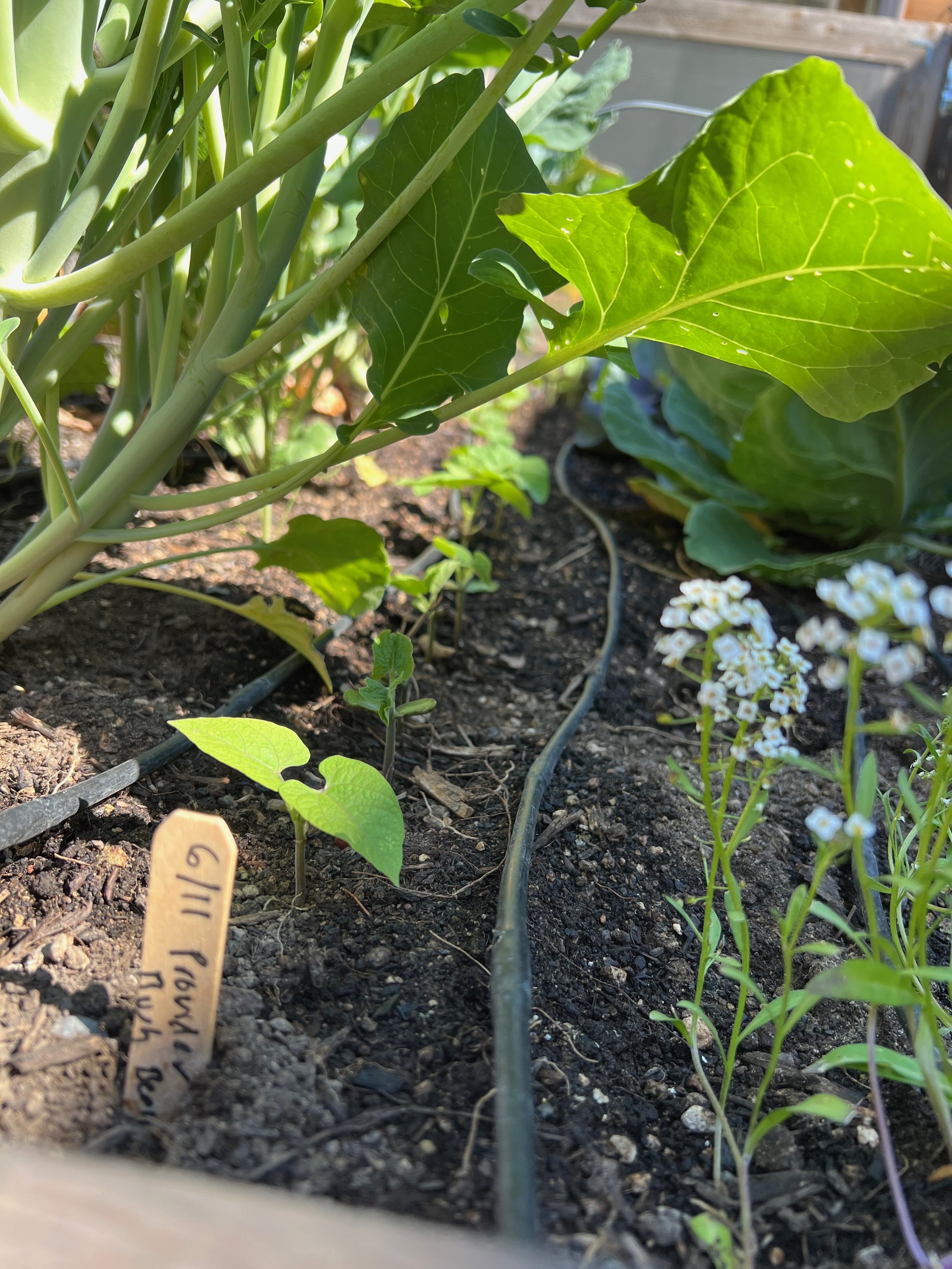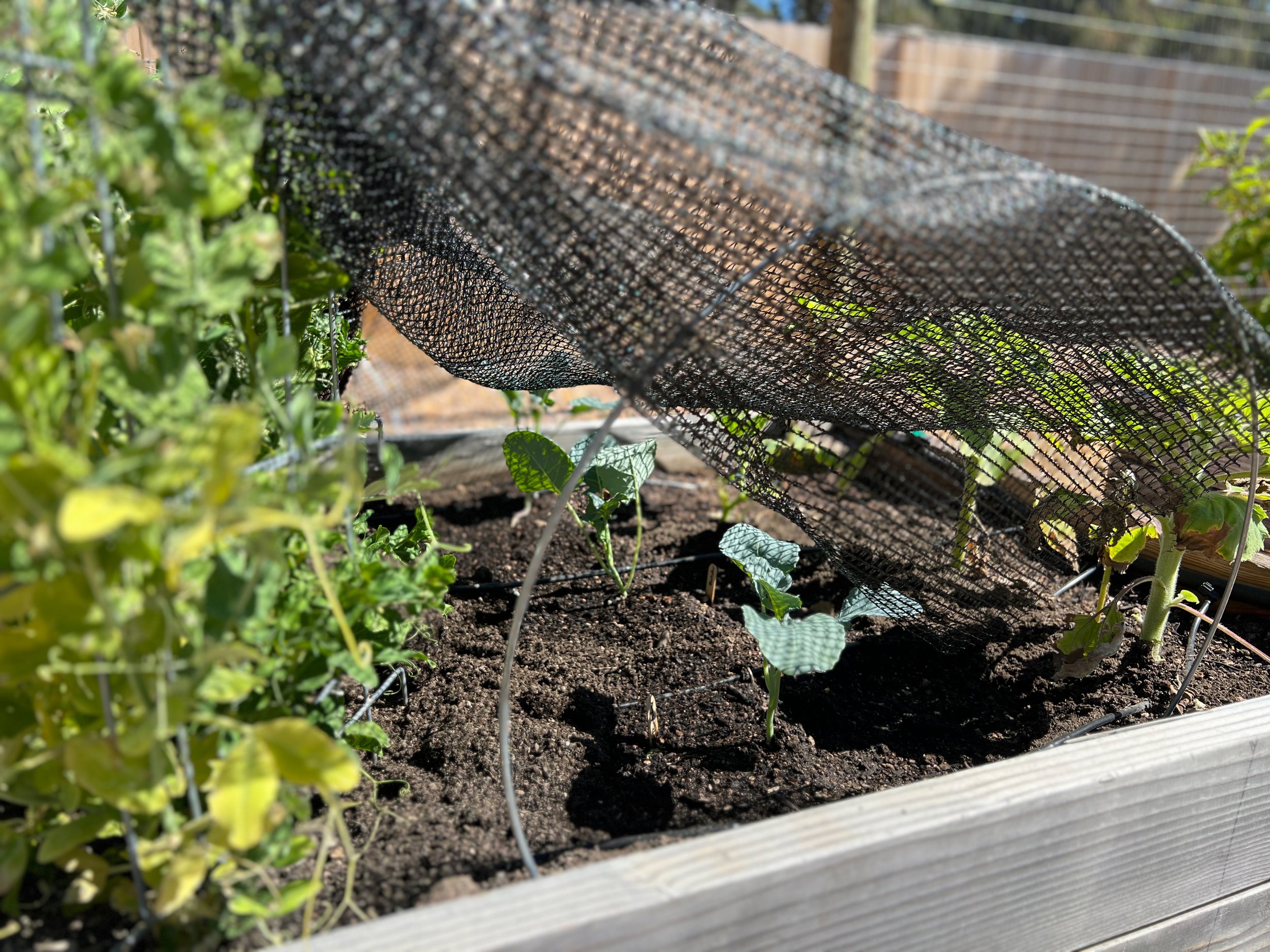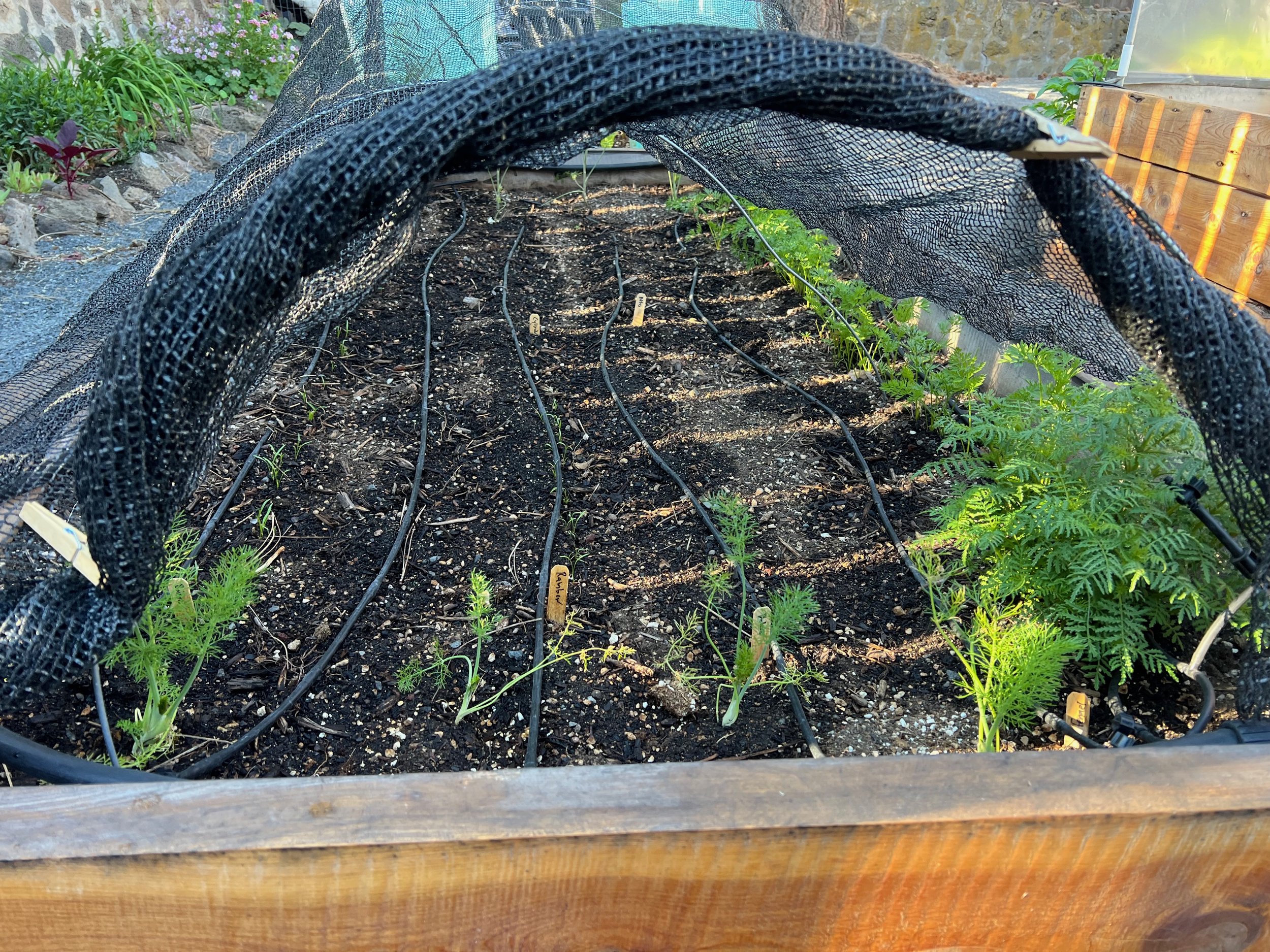How should I water my veggie garden?
Water is a precious resource and is definitely needed for growing food. We hope our guidance here helps local gardeners use water responsibly and answers some common questions about how much and when to water veggie gardens within the City of Bend.
Types of irrigation: At this point in time, in-line drip irrigation is the best tool you can use to get water directly to the roots of veggie plants in your garden. Each emitter lets out the same amount of water no matter where it is located on the line. When using drip irrigation, you know how much water is being applied to your garden, which is helpful for the health of your plants and for minimizing the variables to consider when problem solving garden challenges.
In larger gardens, or for gardeners who mostly grow crops directly from seed, adjustable microsprayers, even though not as water efficient as in-line drip irrigation, can be really helpful for broadcasting water over the entire soil surface. This eliminates the need to drag a hose around the garden and hand water to promote good seed germination for those seeds that aren’t sown directly next to emitters.
Basically, if you sprinkle seeds in a furrow along a drip irrigation line with emitters spaced 6” apart, then those seeds that aren’t right next to an emitter may not get the clue to wake up because they aren’t getting enough water, especially as the soil dries out more quickly on sunny summer days. Once seeds sprout and develop root systems, though, those microsprayers can be turned off and seedlings can can find nearby water even if they aren’t directly adjacent to an emitter.
How much to water?
Use your powers of observation to get to know your soil. Every site has its own unique chracteristics. There are many factors to consider, like your soil composition, how windy it is at your site, what stage of growth your plants are in, how dense your plants are planted, and whether you are using mulch or shade cloth. To determine a reasonable watering schedule that accommodates the diverse crops and life stages of crops in any given garden, our recommendation is always to feel the soil (down in the root zone of your plants) in the morning and in the evening, every day for 1-2 weeks. Consider keeping a log to keep track of how your soil feels before and after you run your drip irrigation. Then, use this data to inform the program you set on your timer or controller.
Ideally, 15-30 minutes after watering, your soil should feel like a damp sponge. You should be able to squeeze a handful of soil into a ball, have it stick together, and then easily fall apart when you shake the ball in your palm. We encourage gardeners to typically begin with 5 minute run times and adjust as needed. Where seeds are sown directly in the soil, keep the top of the soil consistently moist until seeds germinate. Where plants are transplanted, though, it is good practice to let the top of the soil surface dry down in between waterings to prevent pest and disease issues.
When to water: City of Bend regulations restrict irrigation run times to the hours of 5pm-9am. The best time of day to run your irrigation is actually between 7pm and 6am. Even house numbers may water on even days of the month and odd house numbers on odd days of the month. Watering is allowed for all residences on the 31st day of the month. Hand held hoses may be used any day at any time, though. However, sometimes new veggie transplants need to be watered on off watering days based on where they are at in their lifecycle, or a heat wave strikes and plants with shallower root systems end up needing more water. For larger gardens with drip irrigation, it is simply silly, in our opinion, to hand water in these circumstances.
Even though the city of Bend is no longer allowing variances for veggie gardens (unless you’re establishing a new perennial foodscape), running your drip irrigation on an off watering day for an additional cycle outside of your regularly scheduled run times IS permitted for the health of your plants, as when doing so, you are attending to your irrigation by manually running it for a short duration as you would if hand watering with a hose.
For example, imagine that you have an even address. On July 16th, you cleared your aging snap pea plants, transplanted young broccoli plants, and direct sowed carrot seed. You draped shade cloth over the bed to minimize heat stress and help the soil retain moisture. On July 19th, the daytime high hits 96 degrees. You ran your in-line drip irrigation in the morning and in the evening on July 18th, and gently hand watered the row of carrot seed when you noticed the soil was completely dry mid-day, but when you feel the soil in the evening on the 19th and the top 3-4” is super dry, it is appropriate to replenish the soil moisture for the health of your plants. In this scenario, you may run your drip irrigation to replace moisture in the soil, as long as you're monitoring your irrigation and not simply setting a program on your off watering days and leaving it to run all summer long. To minimize the need for extra run times on your off watering days in the first place, though, consider increasing the duration of your run times on your watering days.
Confused or overwhelmed? Schedule an on-site consultation with us or a series of garden lessons to get help! We can guide you in setting up or adjusting a drip irrigation system for your crops.
Considering converting an existing spray zone to drip irrigation? Check out the rebates available from the City of Bend!

